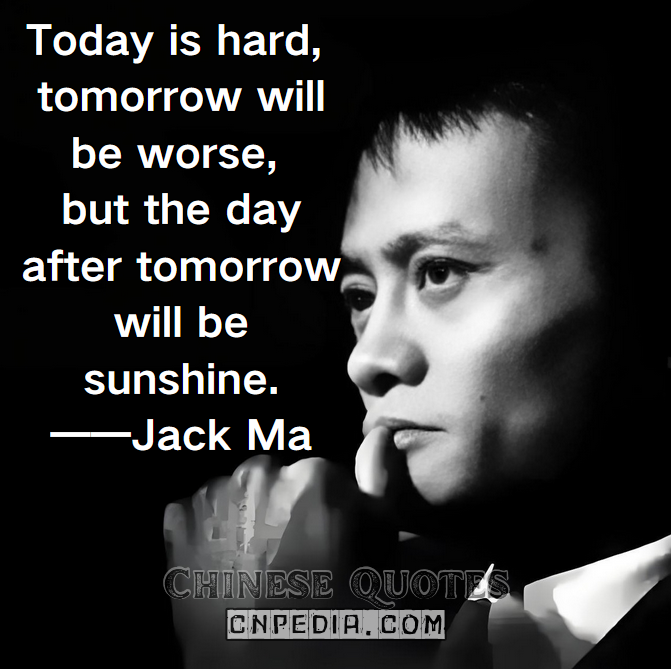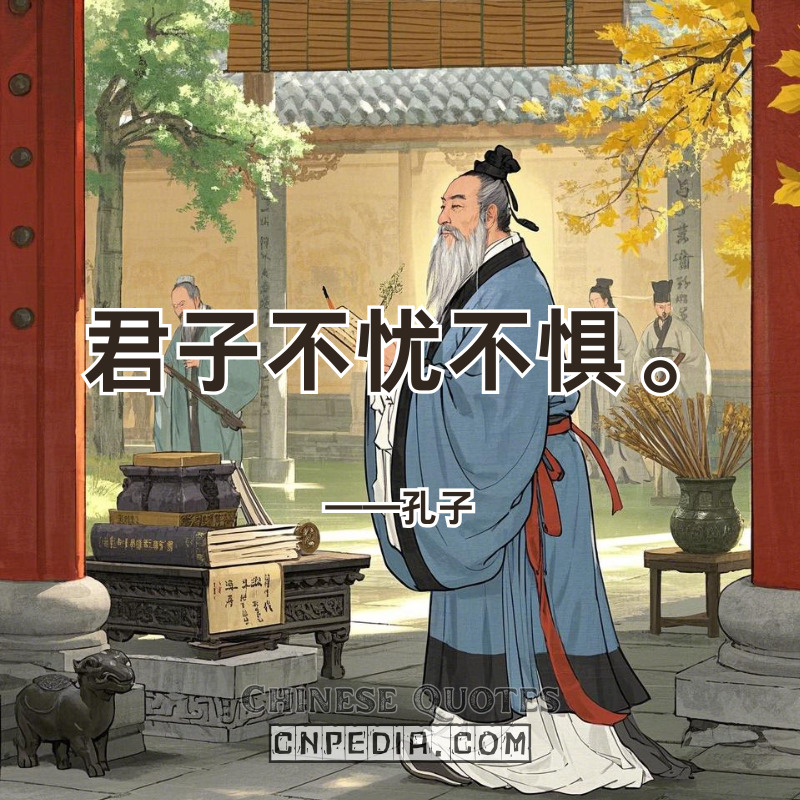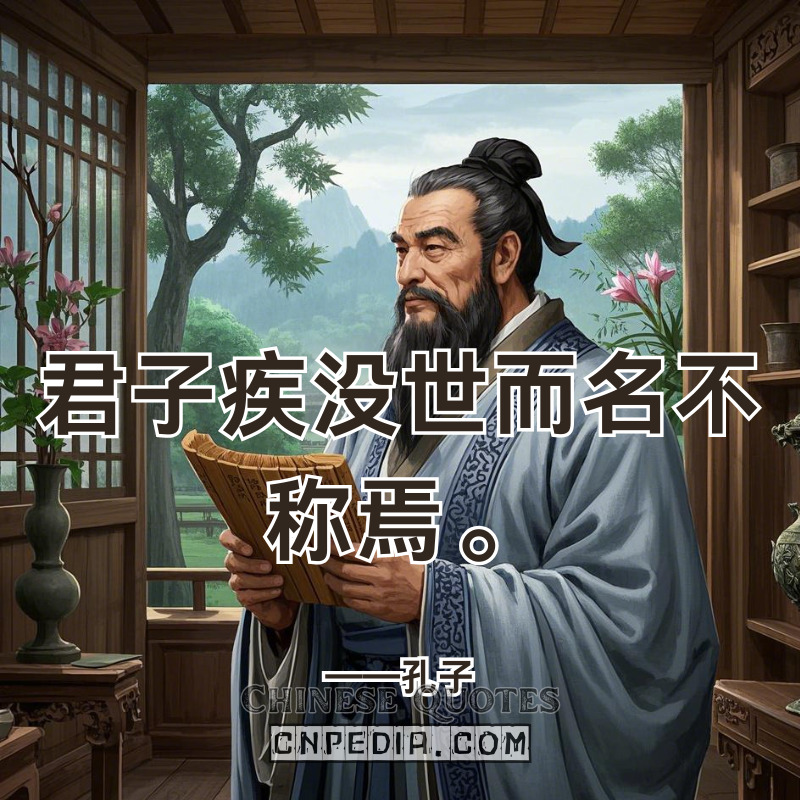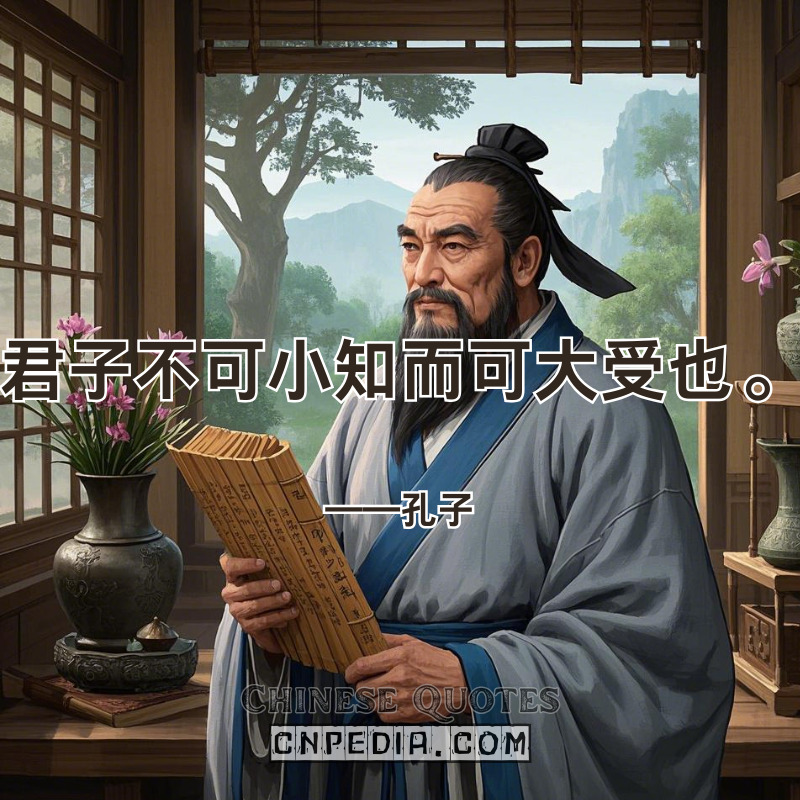.jpg)
"Never try to make money. Solve problems and money will come." ——Jack Ma(2015 Forbes Interview)
“Never try to make money. Solve problems and money will come.” ——Jack Ma(2015 Forbes Interview)
.jpg)
“Never try to make money. Solve problems and money will come.” ——Jack Ma(2015 Forbes Interview)
.jpg)
“Customers should be number one, employees number two, shareholders number three.” ——Jack Ma(2014 NYSE IPO Speech)
.jpg)
“Opportunities lie where people complain.” ——Jack Ma(2014 Clinton Global Initiative)
.jpg)
“If you don’t give up, you still have a chance. Giving up is the greatest failure.” — 2016 World Economic Forum

“Today is hard, tomorrow will be worse, but the day after tomorrow will be sunshine.” — 2008 Alibaba Annual Meeting

君子务本,本立而道生。——孔子(jūn zǐ wù běn, běn lì ér dào shēng — Kǒngzǐ) Translation: “Nobles cultivate roots—when roots firm, the Way sprouts.” Explanation: Confucius’ 务本(wù běn) (“cultivate roots”) philosophy frames wisdom as arboreal architecture. First, the character 本(běn) (“root”) modifies 木(mù) (“tree”) with a horizontal stroke (一) marking the root zone—a 3rd-century BCE infographic prioritizing foundational systems over superficial growth. Second, Apple’s vertical integration strategy embodies 本立而道生(běn lì ér dào shēng) (“roots firm, Way sprouts”). By controlling silicon design and OS architecture (本(běn)), Apple ensures ecosystem cohesion (道(dào)), mirroring how ancient scholars grounded ethics in filial piety before expanding into statecraft. Finally, ecological restoration applies this wisdom. Projects like China’s Loess Plateau revival strengthened native plant roots (本(běn)), enabling watershed regeneration (道(dào))....

君子不忧不惧。——孔子(jūn zǐ bù yōu bù jù — Kǒngzǐ) Translation: “Nobles neither worry nor fear.” Explanation: Confucius’ maxim 不忧不惧(bù yōu bù jù) redefines courage as emotional sovereignty. First, the character 憂(yōu) (“worry”) combines 心(xīn) (“heart”), 頁(yè) (“head”), and 夊(suī) (“striding legs”)—a Bronze Age depiction of anxiety as a storm raging between mind and body. This contrasts with 懼(jù) (“fear”), whose 心(xīn) radical shows emotion’s physiological roots, anticipating modern psychosomatic research by millennia. Second, cognitive behavioral therapy (CBT) operationalizes this wisdom. By teaching patients to intercept 憂(yōu)-like “automatic negative thoughts,” therapists echo Confucian mental discipline. A 2023 WHO study showed CBT reduced anxiety disorders by 41% in cultures embracing stoic philosophies like 不忧(bù yōu). Third, Navy SEALs’ stress inoculation training embodies 不惧(bù...

人能弘道,非道弘人。——孔子(rén néng hóng dào, fēi dào hóng rén — Kǒngzǐ) Translation: “Humans magnify the Way—the Way doesn’t magnify humans.”Explanation: Confucius’ maxim 人能弘道(rén néng hóng dào) 非道弘人(fēi dào hóng rén) reframes ethics as human-centric praxis. First, the character 弘(hóng) (“to magnify”) structurally resembles hands stretching a bowstring—a metaphor for humanity’s role in tautening abstract principles (道(dào)) into actionable reality. This contrasts with Laozi’s cosmic 道(dào) that “nourishes without claiming,” positioning Confucianism as a call to ethical craftsmanship. Second, this anthropocentric Daoism inspired Sartre’s existentialist maxim “existence precedes essence.” Where Laozi’s 道(dào) flows like water, Confucius’ 弘(hóng) demands human chiseling—akin to sculptors revealing form within marble. Modern startups operationalize this through “founder-market fit”: entrepreneurs like Musk magnify (弘(hóng)) electric vehicle adoption (道(dào))...

君子疾没世而名不称焉。——孔子(jūn zǐ jí mò shì ér míng bù chèn yān — Kǒngzǐ) Translation: “Nobles dread dying with mismatched reputations.”Explanation: Confucius’ warning 疾没世而名不称(jí mò shì ér míng bù chèn) (“dread dying with mismatched reputations”) establishes legacy as ethical accountability. First, the character 稱/称(chēng) (“to balance repute”) combines 禾(hé) (“grain”) and 爫(zhǎo) (“hand”)—an ancient “reputation scale” pictograph. Just as farmers weigh harvests, nobles must calibrate lifelong deeds against posthumous recognition, a concept now formalized as personal brand audits. Second, this “legacy calibration” drives modern reputation management systems. Platforms like LinkedIn’s “Profile Strength Meter” operationalize 稱(chēng)’s balance metaphor, algorithmically comparing users’ stated skills with endorsements—a digital-age ritual ensuring one’s 名(míng) (“reputation”) aligns with reality. Third, the philosophy underpins emerging digital afterlife services. Startups...

君子不可小知而可大受也。——孔子(jūn zǐ bù kě xiǎo zhī ér kě dà shòu yě — Kǒngzǐ) Translation: “Nobles can’t be measured in trifles but can bear great mandates.” Explanation: Confucius’ maxim 不可小知(bù kě xiǎo zhī) 而可大受(ér kě dà shòu) unveils a leadership paradox: true capability transcends micromanagement metrics. First, the character 受(shòu) (“to receive mandates”) structurally combines 爪(zhǎo) (“claw/hand”), 冖(mì) (“cover”), and 又(yòu) (“again”)—visually depicting a leader’s hand grasping authority through layered responsibilities. This ancient glyph encodes strategic patience—qualities modern algorithms often miss. Second, the “macro-micro paradox” reshapes CEO succession planning. Top firms like IBM now prioritize “strategic endurance” over quarterly KPIs, mirroring 大受(dà shòu)’s emphasis on crisis-caliber leadership. A 2023 Harvard study found CEOs selected for long-term vision outperformed short-term achievers by...